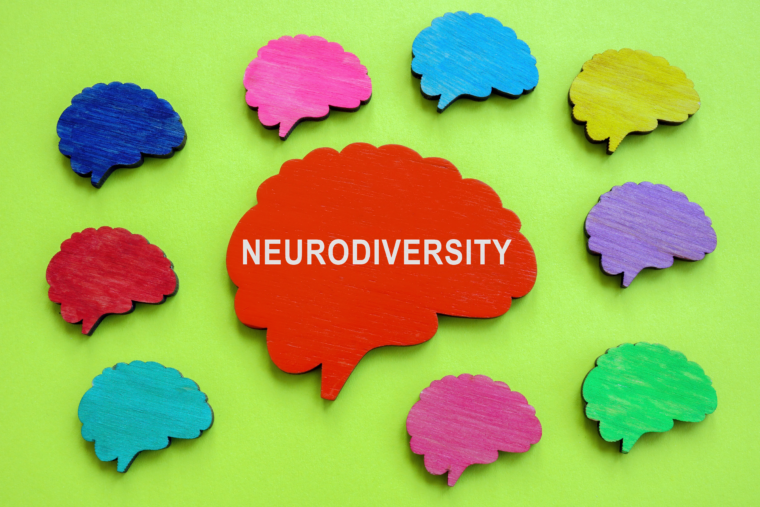I think the concept of Neurodiversity has been world-changing by giving us a new perspective on humanity. ~ Judy Singer

The letter for today is N and the word is NEURODIVERSITY.
Neurodiversity means that every person’s brain works differently. We should appreciate, celebrate, and accept these differences. When it comes to children who have trouble reading or learning, this means they don’t have problems – their brains are just different… they learn in a different way from others.
It also means that everyone has things they do well and things they find hard because of how their brain works.
Why is recognizing neurodiversity important when it comes to reading and learning?
Here are 3 reasons:
- Recognizing neurodiversity helps to reduce stigma: When we understand and accept that neurological differences are a natural variation, we can begin to reduce the stigma that surrounds learning difficulties such as dyslexia, dysgraphia, and ADHD. This, in turn, can help children feel less ashamed or inadequate, and promote a more positive attitude towards learning.
- Accommodating neurodiversity can improve learning outcomes: By creating a learning environment that is inclusive of all children’s needs, educators can help neurodiverse children succeed. Accommodations such as extra time on exams, the use of assistive technology, and alternative learning methods can help to level the playing field and allow children with learning difficulties to demonstrate their strengths.
- Valuing neurodiversity can promote creativity and innovation: Neurodiverse individuals often have unique and valuable perspectives, skills, and talents that can be overlooked in traditional education systems. By valuing and celebrating these differences, we can promote creativity and innovation, and create a more diverse and dynamic society. This can benefit not only individuals with learning difficulties but also the wider community.
If your child has difficulty learning to read and learn in the conventional way, a neurodiversity approach would focus on understanding and addressing the specific learning needs of your child, rather than trying to fit them into a predetermined “normal” mold.
It would also mean that you would recognize and value the differences in your child, understanding that there is no one “right” way to parent or support their learning.
Each child is different, so the encouragement, strategies, and accommodations they need may also differ.
When it comes to understanding and helping a child who has trouble with reading and learning, neurodiversity is important concept. It means that every child’s brain is different, and those differences should be appreciated. We should not see these differences as problems.
Educational programs must consider how each child learns and cater for that.
A neurodiversity approach means finding strategies that work for your child’s learning needs and style. This way, you can make sure they have a supportive learning environment without having to fit into traditional methods that may not be effective for them.
If your child has trouble reading and learning, join the Parenting Hub, where you can connect and network with parents who share similar challenges, ask questions, and seek solutions. If you know someone who has a child with learning differences, send them the above link.

I wish your blogs were around when my granddaughter was younger. I think she would have had it so much easier if some of the teachers followed your advice.
Thanks, Martha. You can help some child today by sharing my articles with their parents and grandparents.
thank you for this series of posts, Florence.. those accommodations help kids so much, and in so many ways..